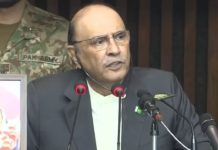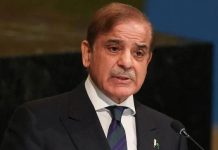CJP passes important remarks; adjourns cast till Nov 1
dna
ISLAMABAD: The Supreme Court on Thursday began hearing a set of petitions seeking a review of its 2019 verdict on the Faizabad sit-in as some petitioners including the federal government filed pleas for withdrawal. The court for the time being did not allow any body to take its petitions back. The court made it clear that by taking back pleas you have admitted that the court order was in line with the law. The Chief Justice remarked that it was interesting that those who should have filed a review petition did not file it.
A three-member bench led by Chief Justice of Pakistan (CJP) Qazi Faez Isa and comprising Justice Athar Minallah and Justice Aminuddin Khan is hearing the pleas challenging the verdict on the Faizabad sit-in staged by the Tehreek-e-Labbaik Pakistan (TLP) in 2017 against the then Pakistan Muslim League-Nawaz (PML-N) government. The court grilled the lawyers and Attorney General of Pakistan for taking pleas back. The CJP asked the AG why he had not raised the point that the review pleas were not heard before. The CJP said that the court was not disposing of the pleas.
The CJP also asked that where that that person who wanted to have democracy in Pakistan. He was insinuating towards Tahirur Qadri who came all the way from Canada to be part of dharna in 2007.
THE Chief Justice said that it seems you had all filed review petition when you were forced by some powerful people and now those people have asked you to take back petitions and you are here to take them back.
Earlier today, the federal government filed an application in the Supreme Court to withdraw its plea against the verdict.
Attorney General for Pakistan (AGP) Mansoor Usman Awan told Geo News that the federal government, which had filed the plea through the Ministry of Defence, has decided to withdraw its petition.
Earlier this week, the Pakistan Electronic Media Regulatory Authority (Pemra) and Intelligence Bureau (IB) also filed similar applications, seeking the withdrawal of their petitions.
Last week, the apex court — in response to a series of review petitions submitted against its previous ruling — said that it would revisit the Faizabad sit-in case on September 28 (today).
The review petitions were filed by the Ministry of Defence, the IB, the PTI, the Pemra, the Election Commission of Pakistan (ECP), the Muttahida Qaumi Movement (MQM), Awami Muslim League chief Sheikh Rasheed Ahmed and Ejazul Haq.
Rasheed’s lawyer has also sought adjournment of today’s hearing saying his client was not in custody and could not be contacted.
Faizabad sit-in legal saga
This legal saga began on April 15, 2019, when the then-federal government, along with entities like the Defence Ministry, Intelligence Bureau, PTI government, AML chief Sheikh Rashid Ahmed, MQM-P, and the Pemra, among others, filed review pleas contesting the apex court’s judgement delivered by the incumbent Chief Justice Qazi Faez Isa regarding the Faizabad sit-in case.
Earlier on February 6, 2019, a two-member bench of the apex court comprising the now-CJP Isa and Justice Mushir Alam recommended that persons, issuing an edict or fatwa to harm another person or put another person in the harm’s way must be dealt with iron hand and prosecuted under relevant laws.
It also ruled that the intelligence agencies must not exceed their respective mandates. Later, the bench disposed of a suo moto case regarding the 2017 Faizabad sit-in staged by the TLP.
The 43-page verdict issued by the two-judge bench and published on the apex court’s website read: “Every citizen and political party has the right to assemble and protest provided such assembly and protest is peaceful and complies with the law imposing reasonable restrictions in the interest of public order. The right to assemble and protest is circumscribed only to the extent that it infringes on the fundamental rights of others, including their right to free movement and to hold and enjoy property.”
In November 2017, the top court took suo motu notice of the three-week-long sit-in, which was held against a change in the finality-of-Prophethood oath, termed by the government as a clerical error, when the government passed the Elections Act 2017. The sit-in was called off after the protesters reached an agreement with the government.

















